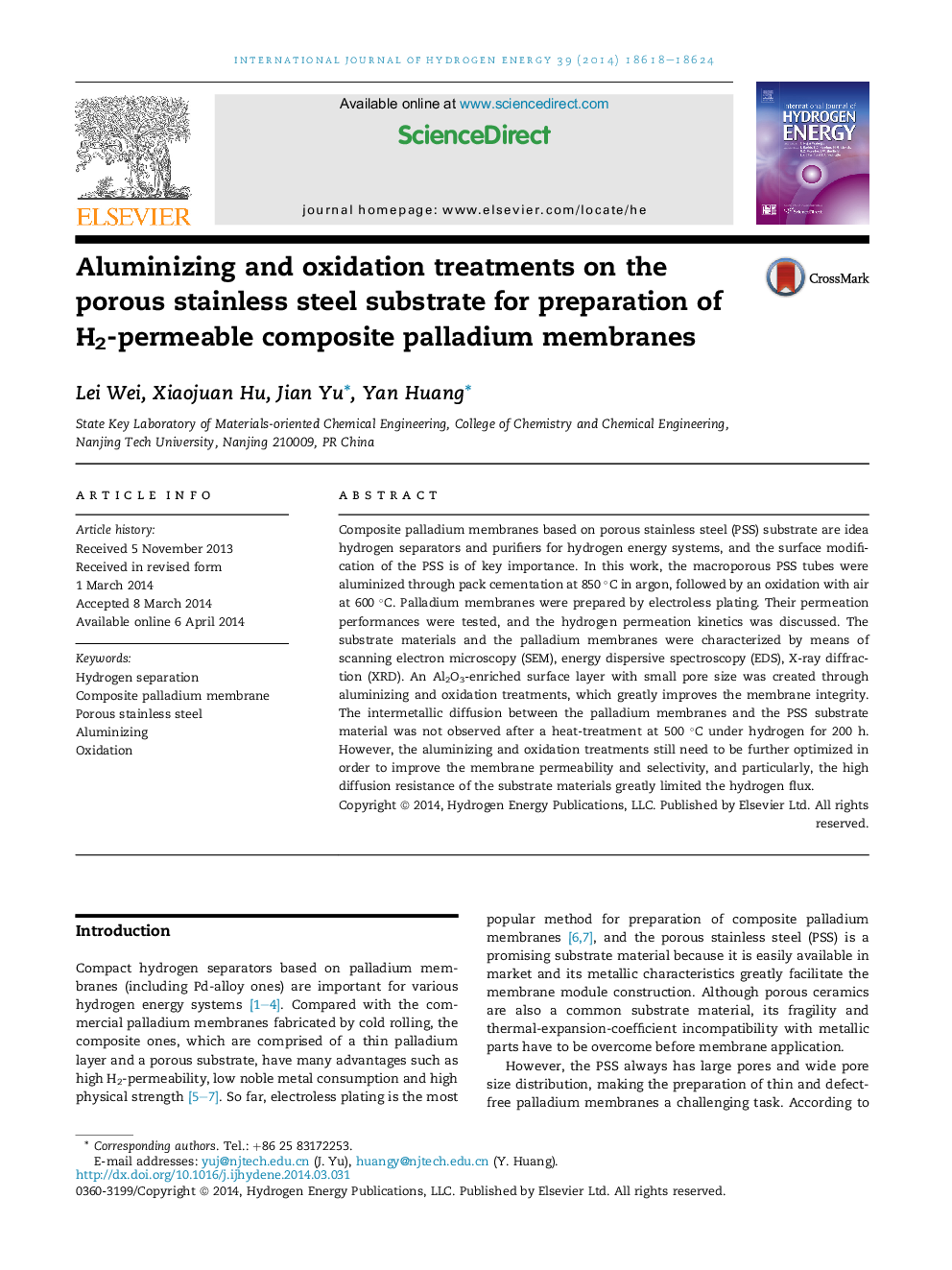| Article ID | Journal | Published Year | Pages | File Type |
|---|---|---|---|---|
| 1280875 | International Journal of Hydrogen Energy | 2014 | 7 Pages |
•H2-permeable Pd membranes were deposited on porous stainless steel (PSS) tubes.•Aluminizing and oxidation treatments improved PSS surface and membrane integrity.•Effects of these treatments on membrane performance were investigated.•Intermetallic diffusion was not observed after treated at 500 °C in H2 for 200 h.
Composite palladium membranes based on porous stainless steel (PSS) substrate are idea hydrogen separators and purifiers for hydrogen energy systems, and the surface modification of the PSS is of key importance. In this work, the macroporous PSS tubes were aluminized through pack cementation at 850 °C in argon, followed by an oxidation with air at 600 °C. Palladium membranes were prepared by electroless plating. Their permeation performances were tested, and the hydrogen permeation kinetics was discussed. The substrate materials and the palladium membranes were characterized by means of scanning electron microscopy (SEM), energy dispersive spectroscopy (EDS), X-ray diffraction (XRD). An Al2O3-enriched surface layer with small pore size was created through aluminizing and oxidation treatments, which greatly improves the membrane integrity. The intermetallic diffusion between the palladium membranes and the PSS substrate material was not observed after a heat-treatment at 500 °C under hydrogen for 200 h. However, the aluminizing and oxidation treatments still need to be further optimized in order to improve the membrane permeability and selectivity, and particularly, the high diffusion resistance of the substrate materials greatly limited the hydrogen flux.
